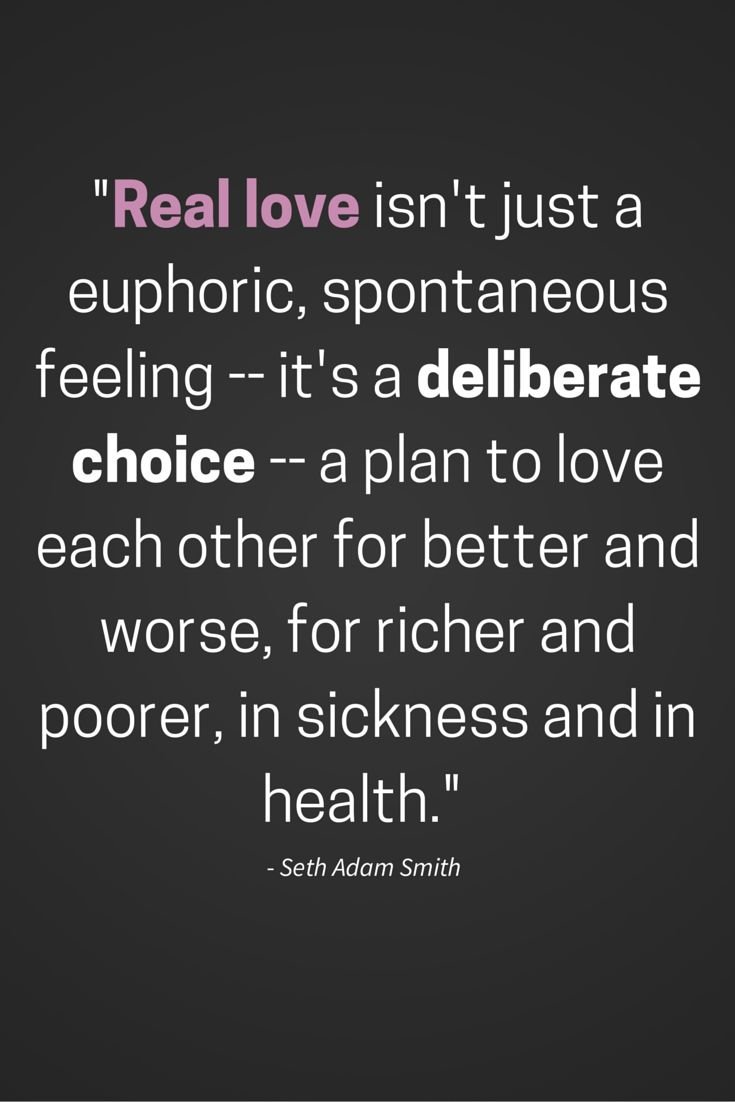"My Partner Is Driving Me Crazy"
Yes, there are times when your partner may frustrate you. That is a part of human nature.
Yes, there are times when your partner may frustrate you. That is a part of human nature. At Great Marriages, it is our goal to help you work through your frustration with each other (and possibly with yourself) and learn how to bring your relationship back on track.
Great Marriages offers one-on-one relationship mentors for couples in crisis:
Considering divorce
Financial stress
Marital discord
Anxiety
Non-communication
Intimacy issues
Infidelity
Our trained mentor couples have been through it all. If you are facing any of these, or other serious issues, please don’t give up. If there is any issue you are facing please let us know so that we can pair you with a mentor couple who is best suited to help you through this tough time.
IT IS NEVER TO LATE TO TRY TO SAVE YOUR RELATIONSHIP!
What are you thankful for?
Gratitude is an integral part of healthy relationships. The key to sparking healthy relationships with gratitude is to take the initiative…
At Great Marriages, we are thankful for:
Volunteers who give of their talents to help others in our community
Donors who make what we do possible
Passionate people who want to see our community thrive by strengthening and keeping families together
Resources we have to offer the community to grow in their relationships
Love
Family
THANKFULNESS AND GRATITUDE ARE KEY TO HAPPY RELATIONSHIPS!
When we appreciate our partners, we develop trust and respect. When we feel appreciated, we feel needed and encouraged. Gratitude is an integral part of healthy relationships. The key to sparking healthy relationships with gratitude is to take the initiative: “Instead of just waiting for the other person to make you feel good, you can jumpstart that cycle and take it into your own hands by focusing on what’s good in your relationship,” says Dr. Gordon. Start with small and easily achievable goals, such as giving your spouse five compliments a day, or simply smiling at them more often.
Gratitude is a skill that you cultivate—nurture it in yourself, and soon your will see positivity radiate back at you.
Source: Susan Heitler
NEED IDEAS TO GET YOU STARTED IN PRACTICING GRATITUDE?
Wake up every day and express to yourself what you are grateful for
Tell whoever you are with at the end of the day the 3 things you are most grateful for
Tell whoever you are with right now (significant other, friend, family member, etc.) the 3 things that you are most grateful for in this moment
Start a gratitude journal - Express gratitude in this journal every night by noting the things that you are grateful for, proud of, and excited about
Acknowledge other people and thank them for inspiring/helping/supporting you - oftentimes people wait their whole lives to be acknowledged (and yet it happens far too infrequently)!
Source: Andrew Merle
What is your spouse's love language?
Have you ever felt like your and your significant other are just not connecting? Are you trying to show love but they just aren't feeling it?
Have you ever felt like your and your significant other are just not connecting? Are you trying to show love but they just aren't feeling it? According to Dr. Chapman, there are five universal ways that all people express and interpret love. Through his more than 30 years of couples counseling, Dr. Chapman has noticed specific patterns in the way partners communicate — and it turns out that most of the population express and interpret love in the same five ways, according to his observations. The 5 Love Languages are:
Words of Affirmation
Quality Time
Receiving Gifts
Acts of Service
Physical Touch
The Currency of Trust
When it comes to building a strong relationship of any kind: trust matters. That applies to friendships, romantic relationships, family, coworkers, everyone!
When it comes to building a strong relationship of any kind: trust matters. That applies to friendships, romantic relationships, family, coworkers, everyone! Trust is the currency of relationships, especially romantic ones.
According to David Horsager, author of The Trust Edge: How Top Leaders Gain Faster Results, Deeper Relationships and a Stronger Bottom Line, trust is a confident belief in someone or something. It’s the confident belief in someone to do what’s right and to deliver on what is promised.
Horsager’s research has identified eight pillars which are key to building and supporting trust:
Clarity. People trust the clear and mistrust the ambiguous.
Compassion. People put faith in those who care beyond themselves.
Character. People notice those who do what’s right over what’s easy.
Competency. People have confidence in those who stay fresh, relevant and capable.
Commitment. People believe in those who stand through adversity. In this instance, actions definitely speak louder than words.
Connection. People want to follow, buy from and be around friends. It’s easier to trust a friend than a stranger, so look for ways to engage with people and build relationships.
Contribution. People immediately respond to results. By giving of yourself and your talents, you are investing in others.
Consistency. People love to see the little things done consistently.
Remember, it’s not likely that you’ll get just one big chance to be trusted. Instead, you’ll have thousands of small ones. Just like a savings account, when you respond consistently you will see the results build up over time.
Paraphrased from First Things First
The importance of laughter in marriage!
Have you and your significant other ever found something to be funny and you reach a point where you feed off each other? Laughter is contagious. It’s also beneficial to life and marriage.
Have you and your significant other ever found something to be funny and you reach a point where you feed off each other? Laughter is contagious. It’s also beneficial to life and marriage.
Benefits of Laughter
Reduction of stress and tension
Stimulation of the immune system
An increase of natural painkillers in the blood
A decrease in systemic inflammation
Reduction of blood pressure
Lifts your spirits
Brings couples closer together
Can help keep a relationship fresh.
There are other medical benefits than the ones listed above. Through laughter, muscles release tension and neurochemicals are released into the bloodstream, creating the same feelings the long-distance joggers experience as “runner’s high.”
Humor brings more than just physiological benefits to a husband and wife. Humor helps us cope.
Humor relieves the tension that can build up between people. It also will bond you with those you laugh with. Research has found that laughter produces Oxytocin, a chemical in the brain also referred to as the bonding chemical.
Learning to laugh a little more just may save your life, not to mention your marriage. To paraphrase Henry Ward Beecher, “A marriage without a sense of humor is like a wagon without springs – jolted by every pebble in the road.”
From Simple Marriage
Start healthy, stay healthy!
You can plan the perfect wedding, but have you thought about what your marriage will look like? Equip yourselves with the tools you will need to overcome any challenge that comes your way by mentoring at Great Marriages.
YOU CAN PLAN THE PERFECT WEDDING, BUT HAVE YOU THOUGHT ABOUT WHAT YOUR MARRIAGE WILL LOOK LIKE?
Equip yourselves with the tools you will need to overcome any challenge that comes your way by mentoring at Great Marriages. We pair you up with a couple who has been married a minimum of 20 years and they will educate you on how to have a successful, life-long marriage.
Expert mentoring can guide couples during this stressful time to:
Listen and learn about one another’s needs and fears
Provide a haven from stress and anxiety
Practice loving negotiation and compromise
Truly understand one another’s values
Maintain respect, appreciation and admiration
Reality check what you can change, and what you cannot change
Achieving these relationship skills will serve you well on your lifelong journey together. Be prepared for the journey ahead as a strong team. This will be the wisest time spent during your wedding planning!
ENJOY YOUR WEDDING, AND PLAN FOR YOUR FUTURE!
Never stop dating your wife & never stop flirting with your husband.
Often, when a couple has been in a committed relationship for awhile (even if they aren't married yet!) they can become complacent. You settle into a routine, things become "normal", and you stop feeling butterflies every time you see your significant other.
Often, when a couple has been in a committed relationship for awhile (even if they aren't married yet!) they can become complacent. You settle into a routine, things become "normal", and you stop feeling butterflies every time you see your significant other. But it's important to keep the spark alive, and there is no better way to do that then by continuing to flirt with and date your significant other!
Flirting with your spouse will remind you why you like them (even when the mystery is gone and they go to the bathroom with the door open). We so often get stuck in the monotony of day to day life, of our schedules and to-do lists, that we forget what is so special about our partners. Taking the time to compliment them or to touch them will rekindle that passion in yourself, and in them. More importantly, it will make them feel desired and appreciated!
Going on a date with your spouse, even if it's just once a month, will give you two time to connect and talk to each other about topics outside of "did you run the dishwasher?" It's extremely important to continue learning about your significant other and one of the best ways to do that is through conversation. There's no better time to forget the routine of life and enjoy intimate conversation then on a date!
Beyond just talking while you're on a date, dating actually creates things to talk about later. You'll have a shared experience (and hopefully a few laughs) that you can talk about when you are settled back into your daily routine. Maybe it'll be an inside joke, a memory of the delicious dessert you had, or even how great your partner looked in their date night outfit.
NEED SOME DATE NIGHT IDEAS? CHECK OUT OUR EVENTS PAGE FOR SOME GREAT DATE NIGHTS!
The importance of planning for your future.
Whether you are planning for your wedding and the future of your relationship, planning for a potential health crisis, or planning to take over the care of an elderly parent you need to PLAN!
PLANNING FOR YOUR FUTURE (BOTH THE GOOD AND THE BAD) IS CRITICAL!
Whether you are planning for your wedding and the future of your relationship, planning for a potential health crisis, or planning to take over the care of an elderly parent you need to PLAN! Great Marriages has programs, resources, and events to help you do just that.
Advanced Care Planning
Planning now for your future health care is one of the most important acts you will ever do for yourself and your family! Advance Care Planning is a process of communication between you, your loved ones and care providers about your health care wishes. An Advance Directive is a legal document that explains to others the kind of medical care you want or don’t want. It is used when you are unable to communicate this information yourself. Advance directives must be prepared ahead of time, when you are able to make your own decision.
Caregiving
Caregiving can be very rewarding but the stress that comes with it cannot be denied. Some spouses, adult children and family members are providing care 24 hours a day. Adult children are especially challenged as they care for elderly parents, meet the demands of their young family and manage career responsibilities.
YOU CAN PLAN THE PERFECT WEDDING, BUT HAVE YOU THOUGHT ABOUT WHAT YOUR MARRIAGE WILL LOOK LIKE?
Equip yourselves with the tools you will need to overcome any challenge that comes your way by mentoring at Great Marriages. We pair you up with a couple who has been married a minimum of 20 years and they will educate you on how to have a successful, life-long marriage.
Expert mentoring can guide couples during this stressful time to:
Listen and learn about one another’s needs and fears
Provide a haven from stress and anxiety
Practice loving negotiation and compromise
Truly understand one another’s values
Maintain respect, appreciation and admiration
Reality check what you can change, and what you cannot change
Achieving these relationship skills will serve you well on your lifelong journey together. Be prepared for the journey ahead as a strong team. This will be the wisest time spent during your wedding planning!
ENJOY YOUR WEDDING, AND PLAN FOR YOUR FUTURE!
Let's talk about sex!
Sex is a key component of a healthy marriage! It is critical for a happy relationship to be both emotionally and physically intimate with each other.
OVER 1/3 OF PEOPLE WHO ARE DIVORCED, OR CONSIDERING IT, CITE A LACK OF SEX AS A KEY PROBLEM IN THE RELATIONSHIP.
There’s a whole host of reasons that passion and intimacy fall by the wayside. Physical issues on the part of men and women can cause a lack of desire. Many people stop having sex once children are in the picture. And for some sex becomes routine and boring. But living in a sexless marriage is harmful to the relationship and both spouses will feel rejected and hurt. Once the physical intimacy starts to crumble the chances of everything else falling apart increase.
We know that chores, kids, finances and so on can put a damper on the romance. A bunch of little things add up to lackluster intimacy, or no intimacy at all. But sex is a key component of a healthy marriage! It is critical for a happy relationship to be both emotionally and physically intimate with each other.
HERE’S A FEW TIPS ON HOW TO KEEP THE FIRE ALIVE:
1) Communicate
We know, you hear it all the time. But it really is important to all aspects of a relationship! You are more likely to desire your partner physically if you are connected to them emotionally. Make time to talk about your hopes and dreams and what you love about each other. It’s much easier to connect physically if you feel an emotional connection.
2) Talk about what you want
You’re adults. You have turn ons and turn offs. Tell your partner what they are! If you are enjoying something in the moment, then express that. If you don’t like something, just say it. Talk to your spouse later on about what you loved. You never know, bringing it up again may lead to more sex.
3) Expectations & Compromise
It’s important to tell your partner what your expectations for sex are. This isn’t a time to be critical, but a time to express what you want. So much rejection and hurt can come from unmet expectations, but if your spouse doesn’t know what you expect they probably won’t fulfill your needs. Also remember to compromise! If you have drastically different opinions (ex; one of you wants it 3 times a week and the other wants it 3 times a month) then you are going to see some unmet expectations. You both need to come to a compromise that works for everyone.
4) Make a plan
Life is busy with work, kids, and hectic schedules; you may feel like you don’t have time for sex. If that’s the case we encourage you to make a plan for it. Block off at least 30 minutes (we always encourage more!) on your schedule to be intimate with each other. Put it on your calendar, you may think it’s weird but there’s a good chance that just seeing it on your calendar will get you more excited.
5) Initiate
That means both of you. It’s not a job specifically for one spouse, but something that both of you should be doing. You don’t have to say yes every time but remember that rejection is painful for everyone.
For better, for worse, forever!
Some of the best advice I ever heard for a relationship was to compliment your significant other during a fight. This has a two fold effect: first - you will stop saying angry things and fueling the fire of the fight, second - you will remember what you love about that person and begin to soften your heart to what is making you upset.
Great Marriages does not advocate for staying in abusive relationships.
If you are in an abusive relationship please contact Safe Harbor at (920) 452-8611.
Some of the best advice I ever heard for a relationship was to compliment your significant other during a fight. This has a two fold effect: first - you will stop saying angry things and fueling the fire of the fight, second - you will remember what you love about that person and begin to soften your heart to what is making you upset. In this moment, you are choosing love. You may not feel like you love the person at that moment, but you can remember the things you love about them. Love is a choice.
When a couple gets married they promise for better or for worse, they promise to love each other forever. Eventually, the stress of day to day life combined with getting comfortable in your relationship will lessen the feeling of love. It is at this point that we must decide to choose love. Don't forget what made you fall in love with that person, don't forget your plans and dreams, don't forget the promise you made of forever.
When you are fighting because your spouse forgot to take out the trash again or they said some unkind words, remember your promise of forever. If it feels like forever is over, remember why you fell in love and focus on those feelings. Choose love, every single day.
If you need help getting through a difficult time, call Great Marriages at (920)783.6142.
WAYS TO CHOOSE LOVE EVERY DAY:
Let go of the little things. (More of life is "little things" than you may think.)
Communicate!
Pay attention to your partner.
Learn your significant other's Love Language.
Accept and celebrate your spouse's differences and uniqueness.
Be flexible with your partner. While agreement is the goal, sometimes you need to concede to the other’s wishes.
Send love notes—a card, text, voicemail, email, post-it note. Tell them why you love them!
Say “yes” more often than “no.”
Schedule time alone together, don't ever stop dating your spouse!
We repeat what we don't repair.
Unfortunately, dysfunctional relationship patterns are learned and passed from one generation to the next. And we will probably repeat them until we heal the underlying trauma and feel lovable and worthy of being treated with respect and kindness.
Why do we repeat negative relationship patterns?
They’re familiar. Even though we know it’s dysfunctional and not working well for us, we repeat behaviors because they feel familiar and we know what to expect from them.
We learned them as children. The beliefs, coping skills, and behavior patterns that we learned in childhood become deeply entrenched because we learned them when we were vulnerable, and our brains weren’t fully developed.
An unconscious effort to gain mastery over them. If you felt rejected, unloved, or powerless as a child, you may recreate experiences and relationships where you feel similarly in an unconscious effort to change the outcome – to heal yourself by gaining the acceptance or love of someone or to feel in control.
We think we deserve to suffer. Traumatized children are often told that they are bad and deserve to be abused or they are the reason dad drinks or the family has so many problems.
We repeat what we don’t repair…
Unfortunately, dysfunctional relationship patterns are learned and passed from one generation to the next. And we will probably repeat them until we heal the underlying trauma and feel lovable and worthy of being treated with respect and kindness.
We repeat dysfunctional relationship dynamics because they’re familiar. Even when you know something is “wrong” or unhealthy, it’s hard to change; it’s always easier to keep doing what you’ve always done than to learn and apply new skills.
Breaking dysfunctional relationship patterns
We can break old patterns, but the more you’ve done something, felt something or thought about something, the stronger those neural connections are – and the harder they are to break.
Here are some ways to begin changing your old relationship patterns:
Become more aware of the relationship patterns in your family of origin. These were the models for all your future relationships. You might find it helpful to read about relationship dynamics, write or journal about your childhood experiences, or check out our “Family of Origin” event.
Reflect on your own behavior. It’s also important to be aware of your thoughts, feelings, and behaviors and understand the part you play in your dysfunctional relationships. Ultimately, you’re responsible for your own actions and learning healthier ways to solve problems, get your needs met, and cope with stress. Check out our “Love & Respect” event!
Heal the underlying trauma wounds. Dysfunctional relationships stem from abandonment, rejection, shame, and other painful and traumatic experiences. Until your emotional wounds and unmet needs are resolved, you will continue to seek healing from partners who are unable to make you feel loved or lovable. Check out our “Finding Forgiveness” event.
Learn and practice new skills. To change our relationship patterns, we also must change our behavior. This might include learning more effective communication skills, how to better regulate our emotions, and consistently practicing self-care. Check out our “7 Principles for Making Marriage Work” event.
Be kind to yourself. Making significant changes takes a lot out of you. Realistically, you’re not going to change long-standing patterns in a matter of weeks or months. So, be gentle with yourself as you slowly make changes, learn new skills, seek new insights, and learn and grow.
CHANGE IS POSSIBLE! CHECK OUT OUR UPCOMING EVENTS
OR LEARN MORE ABOUT OUR MENTORING PROGRAM
Content paraphrased from Sharon Martin, LCSW.
Be Nice!
Although it seems simple, some of the best advice we have for couples is simply, “Be Nice to each other!”
ALTHOUGH IT SEEMS SIMPLE, SOME OF THE BEST ADVICE WE HAVE FOR COUPLES IS SIMPLY, “BE NICE TO EACH OTHER.”
Quite often, couples who end up at Great Marriages are nicer to strangers than they are the person they’re in a relationship with. We know it’s not always easy, and after fights and stress and all the other stuff, you might not like your partner right now. But we assure you, things won’t get better unless you remember to be nice. At times, you won’t like your significant other but being nice to them is the only way to break the cycle. Being nice is the only way you’ll be able to begin working through conflict.
If you want things to improve, remember you catch more flies with honey than vinegar.
Being nice also demonstrates to your partner that you respect them. Respect is key in building and maintaining a marriage. You can’t be passive aggressive if you are being genuinely nice. You can’t ignore someone’s needs and wants if you are being nice. We know it can be difficult in the face of struggles, but we challenge you to think about all your interactions with your significant other and say to yourself, “Am I being nice?” See how things change.
The world is changed by your example, not by your opinion.
It is one thing for people to have an opinion and to voice that opinion. Knowing where you stand on things is important, being willing to take in new information and change your opinion is just as important.
The world is changed by your example, not by your opinion.
It is one thing for people to have an opinion and to voice that opinion. Knowing where you stand on things is important, being willing to take in new information and change your opinion is just as important. But the world was never changed by someone just having an opinion. Your country, your state, your community: none of them have been changed by an opinion alone. We have to take action if we want to change the world, or anything at all.
And yes, this applies to our relationships too.
Your relationship won’t be changed by simply having an opinion on what needs to be changed. We’ve all heard the phrase “actions speak louder than words,” but how often do we take a serious look at our own behavior? (Please, don’t discredit the power of your words, especially in your relationships.) Are we acting in a way that demonstrates our opinions? It is a good first step to say, think, and believe in something. But true change does not come until you act upon those beliefs and lead by example.
Do you want your partner to love you better? Lead by example.
Do you want your kids to be respectful? Lead by example.
Do you want your friends to talk kindly of their spouses? Lead by example.
Do you want to change the world we live in? Lead by example.
You have more power to impact the people around you and let them see the value behind your opinion by simply living out your truth. People are more likely to learn from watching your consistent example than they are to learn by hearing your opinion.
Before you say to your significant other, “A good partner would help around the house more,” you should set the example of doing what would be helpful to your partner. Before you say, “Our relationship would be stronger if we just communicated better,” you should set the example of healthy communication.
Do you want to fight less? Show your partner forgiveness and grace.
Do you want to feel more loved? Go out of your way to make your partner feel loved.
Do you want to feel secure in your relationship? Make sure your partner feels secure.
It all starts when we lead by example.
Dump porn. Fight for love.
Porn and infidelity can destroy relationships. It takes an incredible amount of resiliency, trust, and hard work for a couple to overcome the betrayal that results from these actions. But it can be done.
DUMP PORN. FIGHT FOR LOVE.
Break Free Sheboygan County is a network of sexual recovery group leaders who gather together to provide resources for recovery from unwanted sexual behavior. They help connect Christians overcoming unwanted sexual behavior in confidentiality and community.
Porn and infidelity can destroy relationships. It takes an incredible amount of resiliency, trust, and hard work for a couple to overcome the betrayal that results from these actions. But it can be done.
It is important to understand that shaming your partner for watching porn or being unfaithful will not work. You have every right to be frustrated but using shame to try to get a different outcome will likely make the problem worse. We encourage you to reach out for help, for both of you, to begin overcoming the harmful behaviors and the betrayal.
Break Free offers resources for both people in the relationship. Support for breaking the addiction and changing unwanted sexual behaviors is key to recovery. Likewise, overcoming the trauma of betrayal is easier to do with support. Break Free offers resources for both.
For more help we also encourage you to look into the following resources:
Fight the New Drug (Porn Addiction Recovery)
Bloom for Women (Betrayal Trauma Support)
First Things First (Articles on how to address porn use and infidelity)
Golf & Marriage
The rules of golf and the rules of marriage have more in common than you might think!
The rules of golf and the rules of marriage have more in common than you might think!
GOOD & BAD LIES
We aren’t talking about truthfulness, we are talking about where the ball lands. In golf, you hit the ball from where it lies, even if that is in the bunker. In marriage, you have bunkers and water hazards but you also have smooth greens and perfect lies. There is good in bad in golf and marriage and you have to take both for what they are and figure out how to make the best shot from where you are.
BE POLITE
There are entire books dedicated to golf etiquette. Half the game is the rules that don’t involve you hitting the ball at all, it’s about how you interact with the other players. Marriage is no different! If you can show other golfers the courtesy to say please, thank you, excuse me, and go ahead, you can show that courtesy to your spouse. Even FORE! is admitting your are wrong and saying sorry. Your spouse deserves the same.
START FRESH
Every round of golf is a chance to play your best round yet. You take what you’ve learned from every round before and you apply it to this one. You don’t have to carry your bad shots from the last round onto this scorecard, you can learn from them and do better this time. The reason you keep going on the course is to play a little better than the last round. Your marriage should be the same, you should start every day fresh and ready to learn from past mistakes without carrying them with you.
DRIVE FOR SHOW, PUTT FOR DOUGH.
Are you guilty of going to the driving range but never practicing your short game? In golf and in marriage you need the right balance of big gestures (drives) and small everyday acts (chips & putts). If you can have a consistently strong short game (taking out the trash, helping with dinner, saying “I love you”) then you will get a better score each round. A hole in one is exciting and flashy, but how often can you really do it? A consistent short game is more realistic and acheivable!
EVERYONE NEEDS A MULLIGAN.
Mulligans are one of the most valuable (if unofficial) parts of golf. Sometimes you just mess up and it can’t be fixed, and you need to take a step back and try again. You have to have a golf partner who is kind enough to grant you one and enough humility to ask for one. Marriage is the same: sometimes you are going to make a mess of things, sometimes your spouse is. It is important for you both to be gracious and forgiving at times, humble and apologetic at others. In golf you get a mulligan and you don’t make that same mistake again, but you don’t have to carry it on your scorecard and your partner doesn’t hold it over you. In marriage you can admit you made a mistake and ask forgiveness to try again, and your spouse can look past the mistake and give you the grace of moving past it.
THE GOAL ISN’T TO WIN; IT’S TO LEARN.
Sure, there is competition in golf, but really you are not trying to beat others but rather yourself. You are trying to have one less stroke than the last round. To make a longer drive than the last hole. To just keep getting better! You invest in your golf game with practice and learning new skills to improve your game. Imagine if you put the same dedication into your marriage. Just like you will see improvement in your golf game from learning and practice, you will see them same returns if you practice loving your spouse better and investing time into learning how to be a better spouse to them. You can’t “win” in marriage but you can always learn!
Pay more attention to your family than your phone.
In today’s culture, technology (and especially phones) are an ever present part of our lives. While this has made our lives easier in many ways, it has also started to create some notable rifts in our relationships.
In today’s culture, technology (and especially phones) are an ever present part of our lives. While this has made our lives easier in many ways, it has also started to create some notable rifts in our relationships. Families can be found sitting on the couch playing games on their phones instead of playing games with each other. Kids turn to social media for a sounding board and advice instead of reaching out to family. And partners in romantic relationships feel distant and ignored when compared to a phone. While such a small device has the power to bring us closer together, we need to be very careful to make sure it doesn’t tear us apart.
5 WAYS TO LOVE YOUR PARTNER MORE THAN YOUR PHONE
1. When your partner seeks your attention, give it fully to them. This isn’t to say that every time they speak, you have to put your phone down. It’s possible to be engaged with your phone and have some small talk with your partner. However, in most cases when your partner makes a bid for your attention, they need to know and see that they will fully get it. More often than not, put your phone down and you look your partner in the eye when they speak to you.
2. Create times in which your phone is off limits. While your partner should be able to get your attention whenever they want, they should know they will have your attention at certain times. Mealtimes, bedtimes, certain events, or specific times are all options where you could both agree that phones will not be present. By intentionally making phones off-limits, you will learn to communicate more.
3. Give your spouse full access to your phone. Nothing should be off-limits to your partner. They should have full access to everything on your phone. One of the greatest warning signs of potential adultery is hidden passwords or areas on our phone where our partner isn’t allowed. Choose full transparency with one another. Don’t check-up on your partner, but do occasionally pick up their phone in order to remind yourself they are being honest and faithful.
4. Never communicate anything negative to your partner via text. Phones can be a tremendous asset to couples especially in the hectic years of career and family. A wise couple uses phones to stay connected, communicate quickly, and build their relationship. The ease of texting and messaging should always be used for good. Save the tough conversations for face-to-face interactions where you can see expressions, read body language, and hear tone.
5. Openly discuss the use of technology without defensiveness. Listen. If your partner feels you are too dependent on your phone, consider their point. Make changes. While fair expectations should be set, some partners will desire less phone use than others. Hear what your partner desires and do your best to adjust your use. Like everything in relationships, technology use must be discussed and negotiated. It’s not one conversation. It’s a continuous conversation over the years.
Paraphrased from Kevin Thompson
You wouldn't call if we said "Average Marriages"
If you wanted your marriage to be average, you probably wouldn’t have gotten married. Are we right? Whether you got married 2 years, 10 years, or 50 years ago you probably had a picture of an idyllic partnership in your mind.
IF YOU WANTED YOUR MARRIAGE TO BE AVERAGE, YOU PROBABLY WOULDN'T HAVE GOTTEN MARRIED.
Are we right? Whether you got married 2 years, 10 years, or 50 years ago you probably had a picture of an idyllic partnership in your mind. And then, before you know it, things aren't quite what you pictured. For some things are "okay," just not as rosy as when you started. For some things are really tough. In either case, things aren't what you would describe as "great."
We get a few people every year who tell us they were intimidated to call or stop in because the name is Great Marriages, and their marriage is anything but. Fear is a common reason people don't seek help. But just as you wouldn't order from a restaurant advertising "a mediocre burger" (but you do order the "best burger in town"), you probably wouldn't seek relationship advice from a place called "Average Marriages"...
The Great in our name is aspirational. It's also realistic. We aren't suggesting anything about "perfect" marriages. (As far as we know, no such thing exists!)
BUT WITH WORK AND DEDICATION YOUR MARRIAGE TRULY CAN BE GREAT.
Whether you are engaged, need a quick tune-up, or your marriage is in crisis, we can help!
Call our office at (920)783.6142 or email info@great-marriages.org
What are your children learning from you?
It’s probably common sense to say that children are watching what their parents do, and whatever behaviors their parents have are what will be “normal” to them. But have we really thought about what our relationships, romantic and otherwise, are demonstrating to our children?
It’s probably common sense to say that children are watching what their parents do, and whatever behaviors their parents have are what will be “normal” to them.
BUT HAVE WE REALLY THOUGHT ABOUT WHAT OUR RELATIONSHIPS, ROMANTIC AND OTHERWISE, ARE DEMONSTRATING TO OUR CHILDREN?
Every single relationship we have is a model to our children about what that relationship should look like. We teach our children how to talk to our friends, how to interact with our families, and what it looks like to be in a romantic relationship with someone. (Even in the case of parents who are separated, how we treat the other parent is a demonstration of how we think parents should be treated!)
As parents, we often rely heavily on teaching our children verbally. We tell them what to do or not to do, when to do it, how to do it, etc. Sometimes the age-old saying “Do as I say, not as I do” slips out of our mouths. But children learn better and more by modeling our behavior, so it’s especially important to show them what love looks like.
Our relationships teach our children how to show affection, how to spend quality time together, how to share responsibilities, and even how to fight. They will grow up and their expectations will be a mirror to what they observed in their youth. If we want our sons and daughters, nieces and nephews, and godchildren to have healthy families as adults we have to show them what that looks like now.
IN ALL THINGS IN LIFE, WE SHOULD LEAD BY EXAMPLE.
BUT WE DEFINITELY NEED TO LOVE BY EXAMPLE! WHAT ARE YOUR CHILDREN LEARNING FROM YOU?
Your marriage shouldn't be scary!
In case no one ever told you, some days marriage is just going to be hard. You are going to be scared it won’t work, or that you chose the wrong person, or that it won’t get better.
We are using the term “scary” figuratively.
If you are afraid of your partner please reach out to Safe Harbor by calling (920) 452-7640 or call 911.
***
In case no one ever told you, some days marriage is just going to be hard. You are going to be scared it won’t work, or that you chose the wrong person, or that it won’t get better. Some days you will be afraid it’s all falling apart. All of these feelings are more common than you imagine, and none of them are a reason to give up. If you are scared about the future of your relationship, Great Marriages can help!
SOME TIPS FOR DAYS WHEN YOUR RELATIONSHIP FEELS LIKE IT’S FALLING APART:
Communicate
Your partner may not like to hear it, but it’s important for them to know that you are feeling overwhelmed and afraid. Being vulnerable enough to say “I’m afraid” will likely spur both of you to work on improving things.
Lead by Example
Show your partner how you’d like to be loved. Even on days where you don’t particularly feel like it (and maybe especially on those days!), show your partner that you care about them and love them. It will likely encourage them to do the same.
Talk with a couple who has a relationship you admire
Is there a couple who’s relationship you admire? Ask them to join your for dinner or coffee and time to chat. Ask them what works well in their marriage and what advice they have. If you’re not sure you know of a couple who would be willing to me with you - Great Marriages has plenty!
Get help!
If things feel like they are too much to handle, there is no shame in reaching out for help. Great Marriages can connect you with a couple who has been married for at least 15 years and who are trained to help those that are struggling.

























